March 8, 2023 •
New York City Passes New Independent Expenditure Disclosure
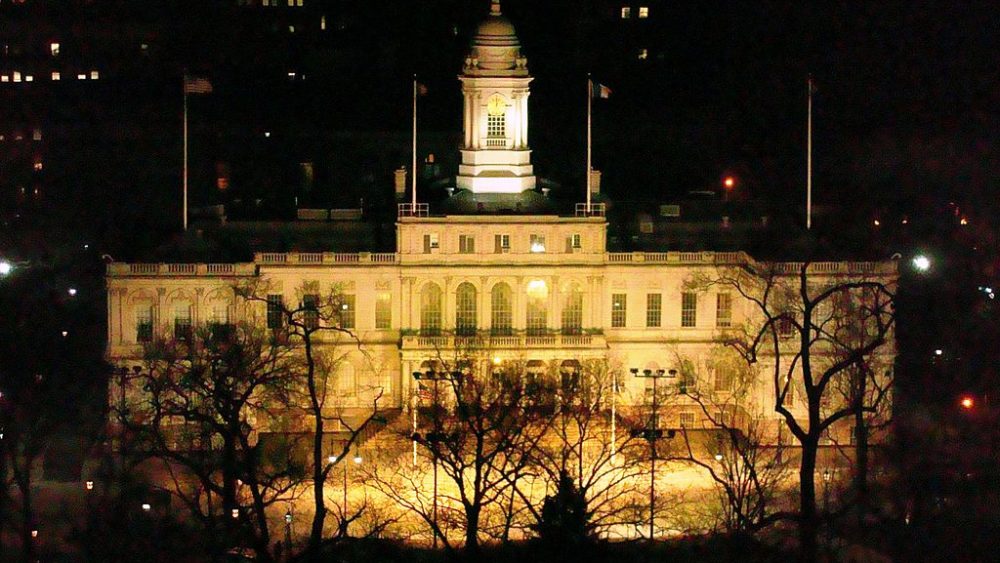
New York City Hall by Beyond My Ken
City Council passed a city charter amendment requiring individuals and entities making independent expenditures related to municipal ballot questions to file disclosure reports. Local Law No. 22 of 2023 requires individuals and entities making independent expenditures of $5,000 or more […]
City Council passed a city charter amendment requiring individuals and entities making independent expenditures related to municipal ballot questions to file disclosure reports.
Local Law No. 22 of 2023 requires individuals and entities making independent expenditures of $5,000 or more in support or opposition to a municipal ballot proposal or referendum to file independent expenditure disclosure reports.
The new reporting requirement will take effect on January 1, 2024.
October 9, 2019 •
Judge Blocks New Jersey Political Disclosure Bill from Taking Effect
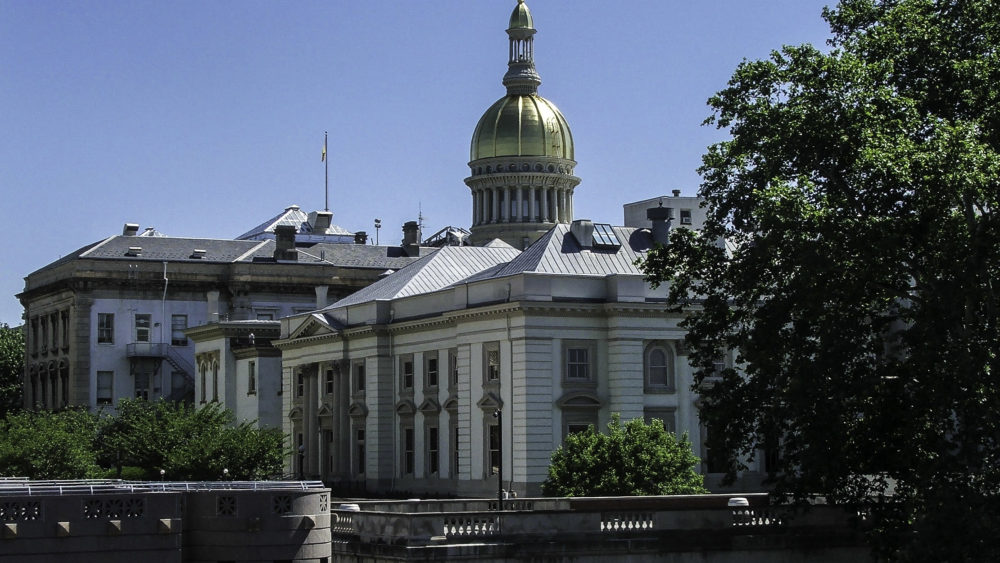
New Jersey Capitol Building
On October 2, 2019, a U.S. District Court for the District of New Jersey issued an opinion and order issuing a preliminary injunction. The Injunction prohibits the state of New Jersey from enforcing the changes in the law from a […]
On October 2, 2019, a U.S. District Court for the District of New Jersey issued an opinion and order issuing a preliminary injunction.
The Injunction prohibits the state of New Jersey from enforcing the changes in the law from a bill passed earlier this year concerning disclosure requirements by independent expenditure committees.
Senate Bill 150, which was to take effect on October 15, requires the committees to disclose donors giving more than $10,000 and expenditures over $3,000.
The parties filing the lawsuit, Americans for Prosperity v. Grewal, argue the disclosure requirements are unconstitutional and violate the First Amendment.
The preliminary injunction will continue while the lawsuit proceeds.
Senate Bill 3, relating to the Campaign Reporting Act, was signed by Gov. Michelle Lujan Grisham on Thursday, April 4, 2019. The bill amends several provisions of campaign finance law, including definitions related to elections cycles, penalties for violating campaign […]
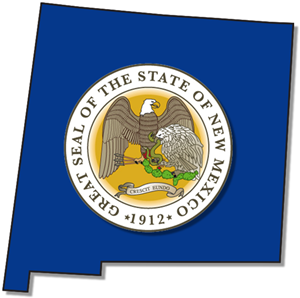 Senate Bill 3, relating to the Campaign Reporting Act, was signed by Gov. Michelle Lujan Grisham on Thursday, April 4, 2019.
Senate Bill 3, relating to the Campaign Reporting Act, was signed by Gov. Michelle Lujan Grisham on Thursday, April 4, 2019.
The bill amends several provisions of campaign finance law, including definitions related to elections cycles, penalties for violating campaign finance law, and independent expenditure reporting.
The bill also requires a person making an independent expenditure in an amount exceeding $1,000 in non-statewide elections and $3,000 in statewide elections to file a report with the secretary of state within specified time periods.
The report must include the name and address of the person who made the independent expenditure, the name and address of the person to whom the independent expenditure was made, the amount, date and purposes of the independent expenditure, and the source of the contributions used to make the independent contribution.
Additionally, contributions to most candidates and political committees will be limited to $5,000 per election cycle unless those contributions are from a candidate’s own personal funds or made to a political committee and used only to make independent expenditures.
Contributions to gubernatorial candidates will be limited to two times the contribution limit during a primary or a general election cycle.
The bill will become effective on July 1, 2019.
September 16, 2016 •
FEC Unable to Agree on Policy Regarding Permissible Corporate Political Activity by U.S. Domestic Subsidiaries of Foreign Nationals
On September 15, the Federal Election Commission (FEC) was unable to agree on a policy to clarify when and if a U.S. domestic subsidiary corporation of a foreign national is illegally involved in political activity. Federal law prohibits foreign nationals […]
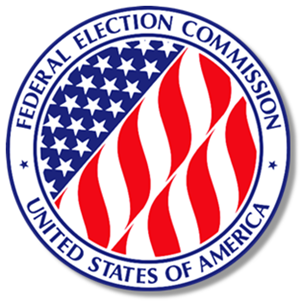 On September 15, the Federal Election Commission (FEC) was unable to agree on a policy to clarify when and if a U.S. domestic subsidiary corporation of a foreign national is illegally involved in political activity.
On September 15, the Federal Election Commission (FEC) was unable to agree on a policy to clarify when and if a U.S. domestic subsidiary corporation of a foreign national is illegally involved in political activity.
Federal law prohibits foreign nationals from directly or indirectly making contributions, donations, expenditures, independent expenditures, and disbursements in connection with federal, state, or local elections. FEC regulations also prohibit foreign nationals from directing, controlling, or participating in the decision-making process of any person, such as a corporation, with regards to decisions concerning the making of contributions, donations, expenditures, or disbursements in connection with elections in the U.S.
Additionally, the FEC was unable to reach an agreement on the creation of a safe harbor for political committees to accept corporate contributions deemed not to have come from foreign national sources.
May 2, 2016 •
Monday News Roundup
Campaign Finance “Sanders Is Biggest Spender of 2016 So Far – Generating Millions for Consultants” by Matea Gold and Anu Narayanswamy for Washington Post Colorado: “House Votes for Disclosure of Independent Spending on Ads Touting Political Parties” by Jeff Roberts […]
 Campaign Finance
Campaign Finance
“Sanders Is Biggest Spender of 2016 So Far – Generating Millions for Consultants” by Matea Gold and Anu Narayanswamy for Washington Post
Colorado: “House Votes for Disclosure of Independent Spending on Ads Touting Political Parties” by Jeff Roberts (Colorado Freedom of Information Coalition) for Colorado Independent
Colorado: “Groups May Take Aim at Denver Campaign Finance, Ethics Rules” by Jon Murray for Denver Post
New York: “De Blasio’s Office Gets Subpoenas as Inquiries into Fund-Raising Continue” by J. David Goodman for New York Times
North Carolina: “FEC Resets Campaign Donation Limits for NC Congressional Races” by Colin Campbell for Raleigh News & Observer
Ethics
Alabama: “Henry to File New Impeachment Articles against Bentley” by Brian Lyman for Montgomery Advertiser
Connecticut: “Questions Raised About Sale of Famous Political Collection” by Edmund Mahony for Hartford Courant
South Carolina: “Senate Passes Bills Aimed at Reforming State Ethics Laws” by Maya Prabhu for Charleston Post & Courier
Utah: “Donor Speed-Dating with Guv Doesn’t Sit Well with Some” by Robert Gehrke for Salt Lake Tribune
Elections
“Voters in Eastern Seaboard Primaries Embrace Trump” by Philip Rucker and Jose DelReal for Washington Post
“Clinton Decisively Wins Democratic Primaries in 4 States” by Abby Phillip, John Wagner, and Anne Gearan for Washington Post
“How the Other Fifth Lives” by Thomas Edsall for New York Times
Texas: “Justices Leave Texas Voter ID Law Intact, with a Warning” by Adam Liptak for New York Times
April 14, 2016 •
MA OCPF Issues Regulation Concerning Coordination
On April 8, the Massachusetts Office of Campaign and Political Finance (OCPF) issued new regulations concerning coordination between candidates and independent expenditure-only political committees. The new regulations clarify definitions in the law for the terms “independent expenditure” and “electioneering communication” […]
 On April 8, the Massachusetts Office of Campaign and Political Finance (OCPF) issued new regulations concerning coordination between candidates and independent expenditure-only political committees. The new regulations clarify definitions in the law for the terms “independent expenditure” and “electioneering communication” and try to “define situations in which a presumption of coordination exists between a candidate and an outside spender who is expressly advocating on the candidate’s behalf,” according to the OCPF.
On April 8, the Massachusetts Office of Campaign and Political Finance (OCPF) issued new regulations concerning coordination between candidates and independent expenditure-only political committees. The new regulations clarify definitions in the law for the terms “independent expenditure” and “electioneering communication” and try to “define situations in which a presumption of coordination exists between a candidate and an outside spender who is expressly advocating on the candidate’s behalf,” according to the OCPF.
The OCPF has said the regulations were created in response to frequent inquiries about the rules of coordination between candidates and other political entities.
February 29, 2016 •
MA OCPF Seeks to Clarify Differences Between Coordinated and Independent Political Expenditures
On February 24, the Massachusetts Office of Campaign and Political Finance (OCPF) held a public hearing on proposed regulations to clarify political expenditure coordination between entities. The proposed regulations seek to elucidate the differences between independent and coordinated expenditures, including […]
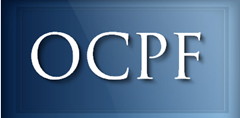 On February 24, the Massachusetts Office of Campaign and Political Finance (OCPF) held a public hearing on proposed regulations to clarify political expenditure coordination between entities. The proposed regulations seek to elucidate the differences between independent and coordinated expenditures, including “situations in which a presumption of coordination exists between a candidate and an outside spender who is expressly advocating on the candidate’s behalf,” according to an OCPF press release. “We get complaints all the time, so we’re trying to create a roadmap,” said OCPF Director Michael Sullivan, as reported in the New Boston Post. Written comments about the draft regulations will be accepted until 5 p.m. on March 4.
On February 24, the Massachusetts Office of Campaign and Political Finance (OCPF) held a public hearing on proposed regulations to clarify political expenditure coordination between entities. The proposed regulations seek to elucidate the differences between independent and coordinated expenditures, including “situations in which a presumption of coordination exists between a candidate and an outside spender who is expressly advocating on the candidate’s behalf,” according to an OCPF press release. “We get complaints all the time, so we’re trying to create a roadmap,” said OCPF Director Michael Sullivan, as reported in the New Boston Post. Written comments about the draft regulations will be accepted until 5 p.m. on March 4.
August 25, 2015 •
Illinois Gov. Signs Bill to Shine Light on Independent Expenditures
Gov. Bruce Rauner has signed Senate Bill 248, increasing the transparency of political spending. The bill requires political committees making independent expenditures of $1,000 or more file a report within five business of the expenditure. If the expenditure is made […]
 Gov. Bruce Rauner has signed Senate Bill 248, increasing the transparency of political spending. The bill requires political committees making independent expenditures of $1,000 or more file a report within five business of the expenditure.
Gov. Bruce Rauner has signed Senate Bill 248, increasing the transparency of political spending. The bill requires political committees making independent expenditures of $1,000 or more file a report within five business of the expenditure.
If the expenditure is made during the 60-day period before an election, the report must be filed within two business days.
The bill, now Public Act 99-0437, goes into effect on January 1, 2016.
July 30, 2015 •
Proposed FEC Rules Up for Public Comment
The Federal Election Commission (FEC) is seeking public comment on new campaign finance regulations addressing disclosure of independent expenditures and electioneering communications. The FEC is also seeking comment on new rules addressing solicitations of corporate and labor organization employees and […]
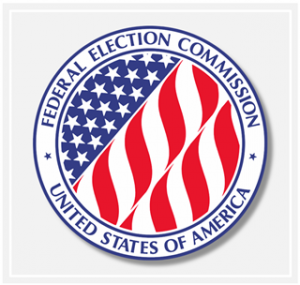 The Federal Election Commission (FEC) is seeking public comment on new campaign finance regulations addressing disclosure of independent expenditures and electioneering communications. The FEC is also seeking comment on new rules addressing solicitations of corporate and labor organization employees and members, independence of expenditures made by independent expenditure-only political committees and accounts, and election-related spending by foreign nationals.
The Federal Election Commission (FEC) is seeking public comment on new campaign finance regulations addressing disclosure of independent expenditures and electioneering communications. The FEC is also seeking comment on new rules addressing solicitations of corporate and labor organization employees and members, independence of expenditures made by independent expenditure-only political committees and accounts, and election-related spending by foreign nationals.
Comments may be submitted electronically at http://www.fec.gov/fosers, referencing REG 2015–04, and must be submitted on or before October 27, 2015.
City Council President Darrell Clarke introduced a measure to increase the transparency of money donated to city elections. With the mayoral race hitting its stride, independent expenditure PACs are making their presence known, donating millions to support their candidate of […]
 City Council President Darrell Clarke introduced a measure to increase the transparency of money donated to city elections. With the mayoral race hitting its stride, independent expenditure PACs are making their presence known, donating millions to support their candidate of choice.
City Council President Darrell Clarke introduced a measure to increase the transparency of money donated to city elections. With the mayoral race hitting its stride, independent expenditure PACs are making their presence known, donating millions to support their candidate of choice.
The bill, while unable to limit these contributions, seeks to increase disclosure of the source of PAC funds by moving the first report from 11 days before a primary election to six weeks before the primary and every two weeks thereafter. This requirement would apply to donations of $5,000 or more on communications mentioning a candidate in any way.
Though the bill was introduced too late to apply to the primary on May 19, Clarke is hoping the changes will be in effect prior to the general election in November.
The New York City Council is considering a measure increasing disclosure requirements for those making independent expenditures to influence city elections. Introduction 148 will require individuals and entities making independent expenditures totaling $5,000 or more to disclose the owners, partners, […]
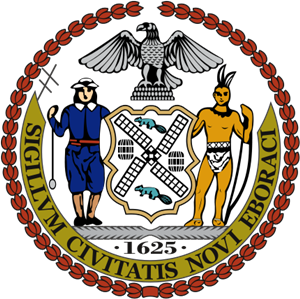 The New York City Council is considering a measure increasing disclosure requirements for those making independent expenditures to influence city elections. Introduction 148 will require individuals and entities making independent expenditures totaling $5,000 or more to disclose the owners, partners, board members, or their equivalents of any entity reporting the expenditure. The measure further requires an individual or entity who transfers $1,000 or more to another individual or entity for the purpose of such other individual or entity making independent expenditures to report the transfer of money as if the transferor has directly made the independent expenditure.
The New York City Council is considering a measure increasing disclosure requirements for those making independent expenditures to influence city elections. Introduction 148 will require individuals and entities making independent expenditures totaling $5,000 or more to disclose the owners, partners, board members, or their equivalents of any entity reporting the expenditure. The measure further requires an individual or entity who transfers $1,000 or more to another individual or entity for the purpose of such other individual or entity making independent expenditures to report the transfer of money as if the transferor has directly made the independent expenditure.
Another provision of the measure requires individuals or entities to disclose detailed information on any electioneering communications, such as the top five donors to the entity responsible for the communication, and names of the owner and CEO of the entity.
Amy Loprest, the executive director of the New York City Campaign Finance Board, applauded the new disclosure requirements, saying, “This legislation will give voters a more complete view of who is paying for the campaign ads that fill their mailboxes and airwaves.”
If passed, Introduction 148 will take effect one year after its enactment.
A new Utah state law requiring independent expenditure reporting for political spending became effective today. House Bill 39 requires all persons and entities, except political parties, to file independent expenditure reports with Utah’s chief election officer within 30 days after […]
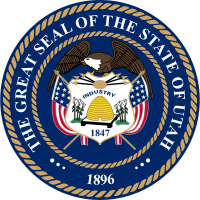
A new Utah state law requiring independent expenditure reporting for political spending became effective today. House Bill 39 requires all persons and entities, except political parties, to file independent expenditure reports with Utah’s chief election officer within 30 days after the day on which a person or entity has made a total of at least $1,000 in independent expenditures during an election cycle.
Another provision of the new law is the requirement to retain records related to the filings for two years, including all independent expenditures, receipts, and donations described in the reports. New definitions concerning independent expenditures are now codified, including telephone bank, which is defined as “500 or more identical or substantially similar telephone calls within any 30-day period.” Fines from $100 to $1000 can be imposed for violations.
November 5, 2013 •
Texas Ethics Commission Guidance: Independent Expenditure-Only PACs
On November 4, in response to a court decision enjoining the Texas Ethics Commission from enforcing parts of the Election Code, the Ethics Commission released guidance concerning independent expenditure-only PACs. The commission acknowledged restrictions on independent expenditures from independent expenditure-only […]
 On November 4, in response to a court decision enjoining the Texas Ethics Commission from enforcing parts of the Election Code, the Ethics Commission released guidance concerning independent expenditure-only PACs.
On November 4, in response to a court decision enjoining the Texas Ethics Commission from enforcing parts of the Election Code, the Ethics Commission released guidance concerning independent expenditure-only PACs.
The commission acknowledged restrictions on independent expenditures from independent expenditure-only PACs, referred to in the state as “direct campaign expenditure only committees,” are currently unenforceable under the October 16, 2013, ruling in Texans for Free Enterprise v. Texas Ethics Commission.
The commission requires independent expenditure-only PACs submit a sworn statement stating the committee intends to act exclusively as a direct campaign expenditure only committee in accordance with Texans for Free Enterprise and the committee will not use its funds to make contributions to candidates for elective office, officeholders, or political committees supporting or opposing candidates or assisting officeholders.
The commission also made available sample template political committees may use to submit their sworn statements
October 24, 2013 •
Second Circuit Grants Injunction on NY Contribution Limits
Court says limits are “likely unconstitutional”
 The Second Circuit Court of Appeals has reversed a District Court ruling, denying a preliminary injunction on campaign contributions to independent-expenditure PACs. The lawsuit was filed by New York Progress and Protection PAC, who alleged that a wealthy donor, Shaun McCutcheon, pledged to donate $200,000 to the PAC in support of Joseph J. Lhota, a NYC mayoral candidate. McCutcheon’s donation, however, would exceed the contribution limit of $150,000 to independent-expenditure committees set by New York law.
The Second Circuit Court of Appeals has reversed a District Court ruling, denying a preliminary injunction on campaign contributions to independent-expenditure PACs. The lawsuit was filed by New York Progress and Protection PAC, who alleged that a wealthy donor, Shaun McCutcheon, pledged to donate $200,000 to the PAC in support of Joseph J. Lhota, a NYC mayoral candidate. McCutcheon’s donation, however, would exceed the contribution limit of $150,000 to independent-expenditure committees set by New York law.
The Circuit Court granted the injunction, stating the contribution limits are “likely unconstitutional” and the claim has a substantial likelihood of success. The Court further noted the plaintiffs would face irreparable harm if the injunction was not granted.
The donor in question, Shaun McCutcheon, is also embroiled in a similar suit before the Supreme Court of the United States, challenging the federal limits to campaign contributions.
State and Federal Communications, Inc. provides research and consulting services for government relations professionals on lobbying laws, procurement lobbying laws, political contribution laws in the United States and Canada. Learn more by visiting stateandfed.com.

